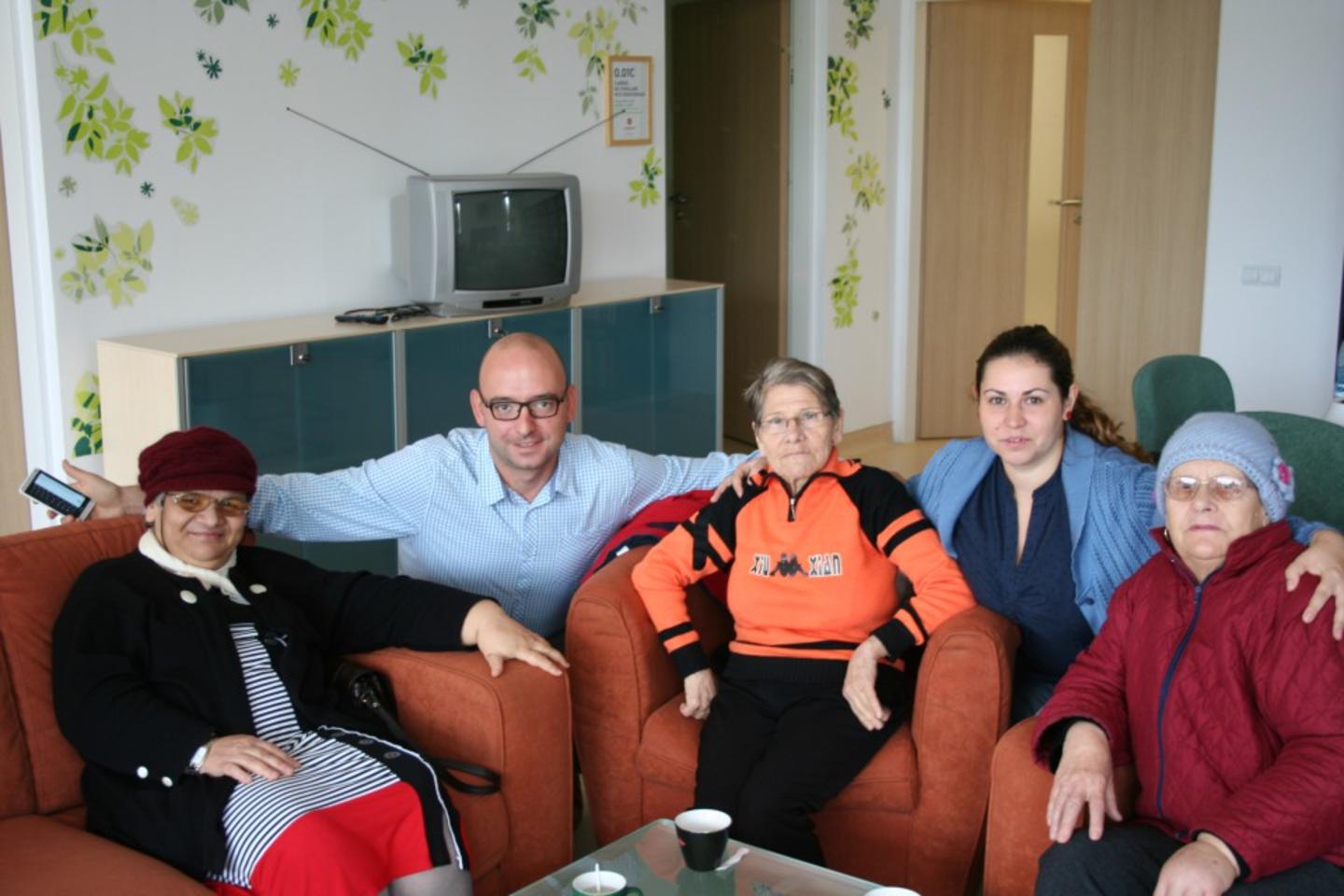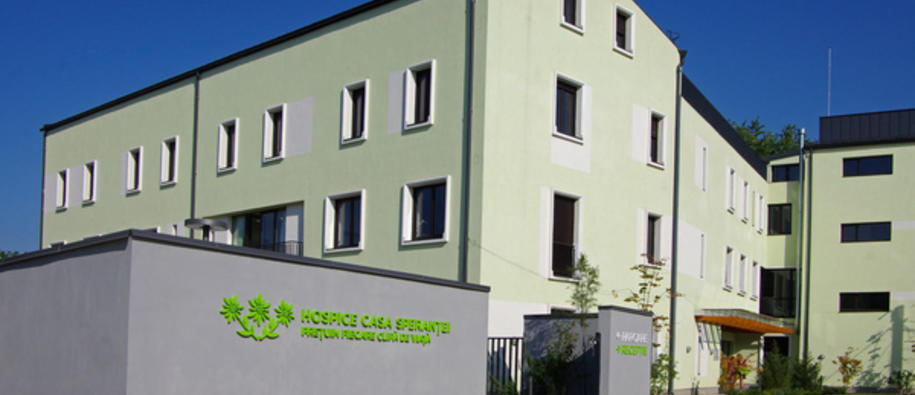In late October 2013, Manuela was diagnosed with breast cancer. She had her operation in May this year and discovered afterwards that she had got lymphedema in her left arm – a chronic inflammation that develops slowly over time. The swelling can range from mild to severe, and women with breast cancer are especially at risk because of the radiation treatment. At the Hospice Casa Sperantei, Manuela has access to a sequential pressure pump, a device that helps to diminish and control the swellings.
“My arm became very swollen after my operation. This is something I probably will have to live with for the rest of my life, so it is very important for me to get this sort of treatment,” Manuela explains.
Manuela used to work as a teacher before she was diagnosed with breast cancer. She hopes that one day she will be able to start working again, but for now her focus is on full recovery. She is still awaiting some tests results but remains optimistic. The time leading up to her operation was the hardest to cope with. However, also in the time immediately after, having a good support system in place was crucial.
“It has been painful at times, both physically and mentally, and was very tired after the operation. Therefore, it is good to have a place where I can go and talk with someone about the illness.”
Providing holistic care
The Hospice Casa Sperantei receives funding from Iceland, Liechtenstein and Norway through the NGO fund in Romania to improve the access to comprehensive care services for patients with incurable illnesses – either life-threatening or life-limiting. The project will provide specialised care to 2000 patients – both children and adults - and their families, as well as training for 250 health personnel. Alex Padureano, Director of the Hospice Casa Sperantei, underlines the importance of having a holistic approach:
“The diagnosis and individual circumstances vary, so we try to adopt the treatment to the needs of the patients and their families. Of course, pain management and the medical side of it are very important, but so are the practical and social aspects.”
Sharing common experiences
Dumitra, Medelea and Alexandrina are sitting in one of the living rooms at the Hospice. Like Manuela, the three ladies have all had breast cancer – in addition to other illnesses and need to use the sequential pressure pump to control and diminish the swellings in their left arms.
Dumitra lives outside of Bucharest. Despite having to travel quite a distance to get to the Hospice, she tries to be there as often as possible:
“I did not know that such services existed, so I am extremely happy to have found this place. Here we can talk about how we are dealing with the illness and share common experiences.”
Alina Bratu is a nurse at the Hospice. She emphasises that it is possible to enjoy life, even with failing health:
“Sometimes we organise events outside the hospice facilities. Both the women and the staff take great pleasure in these events.”
About the project
The project receives €231 758 from Iceland, Liechtenstein and Norway through the NGO fund in Romania. The project started March 2013 and will end April 2014.

